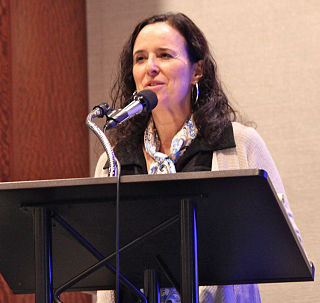A Quote by Isaac Asimov
In all the known history of Mankind, advances have been made primarily in physical technology; in the capacity of handling the inanimate world about Man. Control of self and society has been left to to chance or to the vague gropings of intuitive ethical systems based on inspiration and emotion. As a result no culture of greater stability than about fifty-five percent has ever existed, and these only as the result of great human misery.
Quote Topics
Related Quotes
Literature, like magic, has always been about the handling of secrets, about the pain, the destruction, and the marvelous liberation that can result when they are revealed. If a writer doesn't give away secrets, his own or those of the people he loves, if he doesn't court disapproval, reproach and general wrath, whether of friends, family or party apparatchiks... the result is pallid, inanimate, a lump of earth.
The life and soul of science is its practical application, and just as the great advances in mathematics have been made through the desire of discovering the solution of problems which were of a highly practical kind in mathematical science, so in physical science many of the greatest advances that have been made from the beginning of the world to the present time have been made in the earnest desire to turn the knowledge of the properties of matter to some purpose useful to mankind.
In recent years our knowledge of modern technology has increased considerably, and as a result we have witnessed remarkable material progress, but there has not been a corresponding increase in human happiness. There is no less suffering in the world today, and there are no fewer problems. Indeed, it might be said that there are now more problems and greater dangers than ever before.
From earliest times, water has always been acknowledged as a primary human good and an indispensable natural resource. Around the great rivers of the world, like the Mississippi, great cultures have developed, while over the course of the centuries the prosperity of countless societies has been linked to these waterways. Today, however, the great fluvial systems of every continent are exposed to serious threats, often as a result of man's activity and decisions.
The most important characteristic of an organism is that capacity for internal self-renewal known as health. There are two organisms whose processes of self-renewal have been subjected to human interference and control. One of these is man himself (medicine and public health). The other is land (agriculture and coservation). The effort to control the health of land has not been very successful.
If you meditate, meditation is so beautiful, who bothers about the result? And if you bother about the result, meditation is not possible. This result oriented mind is the only barrier, the only block. There are not many blocks, the only block is that of the result oriented mind: never here-now, always somewhere else thinking of the result; while making love, thinking about the result.
We humans have existed in our present form for about a hundred thousand years. I believe that if during this time the human mind had been primarily controlled by anger and hatred, our overall population would have decreased. But today, despite all our wars, we find that the human population is greater than ever. This clearly indicates to me that love and compassion predominate in the world. And this is why unpleasant events are "news"; compassionate activities are so much a part of daily life that they are taken for granted and , therefore, largely ignored.
The only thing that one really knows about human nature is that it changes. Change is the one quality we can predicate of it. The systems that fail are those that rely on the permanency of human nature, and not on its growth and development. The error of Louis XIV was that he thought human nature would always be the same. The result of his error was the French Revolution. It was an admirable result.
Whether we be Italians or Frenchmen, misery concerns us all. Ever since history has been written, ever since philosophy has meditated, misery has been the garment of the human race; the moment has at length arrived for tearing off that rag, and for replacing, upon the naked limbs of the Man-People, the sinister fragment of the past with the grand purple robe of the dawn.
There's only one band that could ever even pretend to assume the mantle of what the Beatles did, who have been so pre-eminent and world-dominating that they could effect a paradigm shift in the culture, who have been willing to leverage their success into musical change, and that is U2 - regardless of what the result of that is.
In anthropology, which historically exists to 'give voice' to others, there is no greater taboo than self-revelation. The impetus of our discipline, with its roots in Western fantasies about barbaric others, has been to focus primarily on 'cultural' rather than 'individual' realities. The irony is that anthropology has always been rooted in an 'I' - understood as having a complex psychology and history - observing a 'we' that, until recently, was viewed as plural, ahistorical, and nonindividuated.





































